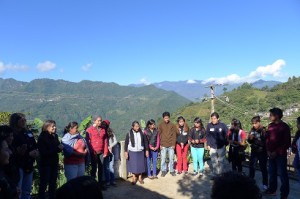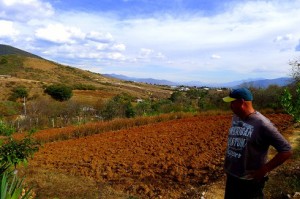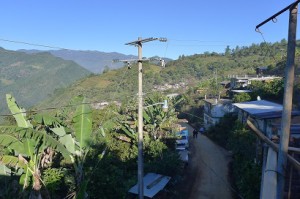 We are falling in love all over again with the earth and the people of the earth. It’s a fierce and empirical love, a nourishing longing, an anchor line, a web of moral responsibility, and a desperate beautiful opening.
We are falling in love all over again with the earth and the people of the earth. It’s a fierce and empirical love, a nourishing longing, an anchor line, a web of moral responsibility, and a desperate beautiful opening.
It took a few weeks of cold calls and small talk over coffee to build 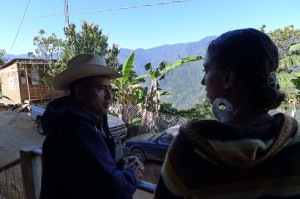 relationships with the people here who have their hands on the land and the hearts and minds in the movement for food sovereignty – and at last we are so grateful to be welcomed in. The most delicious connections in the past weeks were in the rural mountain community of
relationships with the people here who have their hands on the land and the hearts and minds in the movement for food sovereignty – and at last we are so grateful to be welcomed in. The most delicious connections in the past weeks were in the rural mountain community of 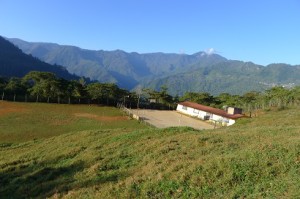 Yaviche, Rincon, Sierra Juarez. We were invited as guest facilitators and evaluators by Esceula de Bien Comun, a community organizing training for indigenous leaders from rural towns across the state. The 5-hour journey from Oaxaca on windy one-lane roads etched into the mountainside was made memorable not only by the enveloping cloud forests and cascading water, but the thoughtful conversations with one of EBC’s trainers, Jutta – who has retained humility and a learner’s mind even after decades of organizing with some of the world’s most notable social movements.
Yaviche, Rincon, Sierra Juarez. We were invited as guest facilitators and evaluators by Esceula de Bien Comun, a community organizing training for indigenous leaders from rural towns across the state. The 5-hour journey from Oaxaca on windy one-lane roads etched into the mountainside was made memorable not only by the enveloping cloud forests and cascading water, but the thoughtful conversations with one of EBC’s trainers, Jutta – who has retained humility and a learner’s mind even after decades of organizing with some of the world’s most notable social movements.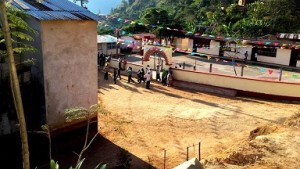
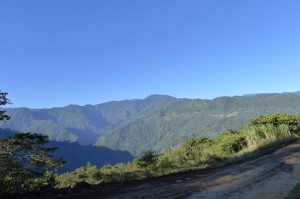 On the first night, we gathered in the dark forest around a campfire, serenaded by a 12-piece brass band from the town. We drank fire-cooked coffee sweetened with panela, both grown on the land there and had an exchange about farming in our respective communities – NY, Mixe, Mixteca, Sierra. The conclusion was that in all these lands the heart of the campesino in the same, listening to and loving Madre Tierra.
On the first night, we gathered in the dark forest around a campfire, serenaded by a 12-piece brass band from the town. We drank fire-cooked coffee sweetened with panela, both grown on the land there and had an exchange about farming in our respective communities – NY, Mixe, Mixteca, Sierra. The conclusion was that in all these lands the heart of the campesino in the same, listening to and loving Madre Tierra.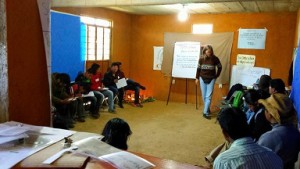
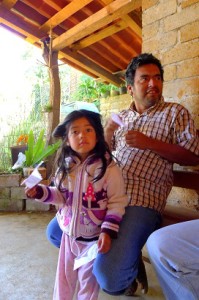 Our host Valdu (Oswaldo), has lived his entire life in Yaviche. Now university educated, Valdu has returned to his community, dedicated to integrating modern and traditional farming practices in culturally appropriate ways, ultimately ensuring his people’s survival. With his 3-year old daughter hanging on his leg, he spoke passionately about the need to learn the Zapotec language to understand where his people come from and the subtle difference in the villages. He created a radio station that tra
Our host Valdu (Oswaldo), has lived his entire life in Yaviche. Now university educated, Valdu has returned to his community, dedicated to integrating modern and traditional farming practices in culturally appropriate ways, ultimately ensuring his people’s survival. With his 3-year old daughter hanging on his leg, he spoke passionately about the need to learn the Zapotec language to understand where his people come from and the subtle difference in the villages. He created a radio station that tra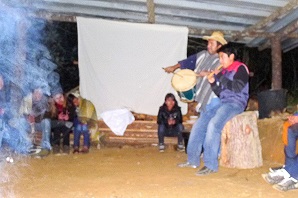 nsmits to 30 pueblos in the Rincon region and organized a grassroots cell phone service in the face of government ridicule that “Indians could never accomplish that.” The hope in his eyes was tangible and infectious.
nsmits to 30 pueblos in the Rincon region and organized a grassroots cell phone service in the face of government ridicule that “Indians could never accomplish that.” The hope in his eyes was tangible and infectious.
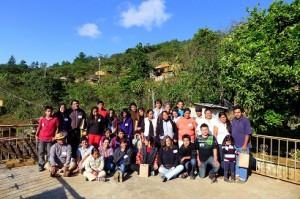 Neshima turned 12 while we were in the mountains. When we asked what the birthday traditions were for children, we learned that its best to take the child to the campo and have them work very hard. Completing lots of chores on one’s birthday ensures a good upcoming year. Luckily, her birthday coincided with
Neshima turned 12 while we were in the mountains. When we asked what the birthday traditions were for children, we learned that its best to take the child to the campo and have them work very hard. Completing lots of chores on one’s birthday ensures a good upcoming year. Luckily, her birthday coincided with 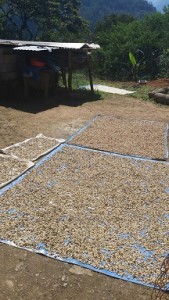 the town’s annual festival, so there was music and dancing into the night to balance the chores. We learned the traditional partner dance – Jarabe – with its elegant spins and respectful, modest contact between partners. Emet added to the fun by sharing his favorite card tricks and ball games. I think we all agreed that veggie soup with tortillas, all super fresh from the land, tasted much better than any birthday cake.
the town’s annual festival, so there was music and dancing into the night to balance the chores. We learned the traditional partner dance – Jarabe – with its elegant spins and respectful, modest contact between partners. Emet added to the fun by sharing his favorite card tricks and ball games. I think we all agreed that veggie soup with tortillas, all super fresh from the land, tasted much better than any birthday cake.
On the final morning in Yaviche, we were invited to lead a “dinamico” to energize the group of nascent community organizers. Leah offered a singing game from Ghana called “Osami na” which involves passing stones in a circle to the rhythm of the song. It felt whole and complete to bring our love for our African ancestors to this new land in song. On the return we had a sweet family sharing about the
love for our African ancestors to this new land in song. On the return we had a sweet family sharing about the 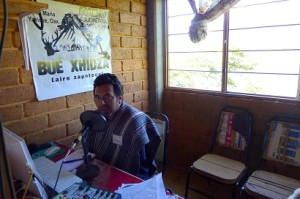 lessons we wanted to take home with us – an inspiration to produce more of our soil fertility and our own seed, an assuredness that living close to others and also on the land makes sense, noticing the bio-geological similarities between upstate NY and Rincon, a reaffirmation that Western ideology “de tener” and the Original ideology “de ser” are out of balance in our American lives and ultimately, unsustainable, and a desire to for more “convivencia” – existing together in mutual support.
lessons we wanted to take home with us – an inspiration to produce more of our soil fertility and our own seed, an assuredness that living close to others and also on the land makes sense, noticing the bio-geological similarities between upstate NY and Rincon, a reaffirmation that Western ideology “de tener” and the Original ideology “de ser” are out of balance in our American lives and ultimately, unsustainable, and a desire to for more “convivencia” – existing together in mutual support.
We continue to make connections here in the Valley as well. Friends from the Unitierra community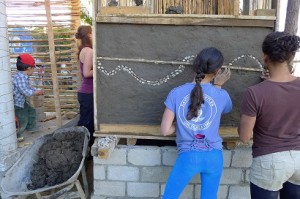 invited us to a collective work party “tequio” on the outskirts of the city. There they are setting up a collective to demonstrate ecological technology and communal living, reminding us of the projects and sentiments of our
invited us to a collective work party “tequio” on the outskirts of the city. There they are setting up a collective to demonstrate ecological technology and communal living, reminding us of the projects and sentiments of our 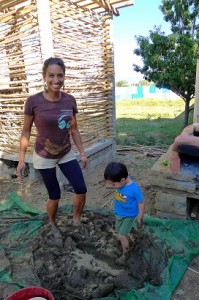 early 20’s. We worked to plaster a composting dry toilet using an earthen mix of pine needles, cactus, clay, manure, and sand. Jonah ended up teaching an impromptu workshop on natural building and Neshima led the group is decorating the walls with designs made of pebbles. Emet held down the sword play as always, using carrizo, a local bamboo look-alike. Helping these new friends with their project amplified our gratitude for all of you who have busted butt at our work parties over the years to make Soul Fire Farm happen.
early 20’s. We worked to plaster a composting dry toilet using an earthen mix of pine needles, cactus, clay, manure, and sand. Jonah ended up teaching an impromptu workshop on natural building and Neshima led the group is decorating the walls with designs made of pebbles. Emet held down the sword play as always, using carrizo, a local bamboo look-alike. Helping these new friends with their project amplified our gratitude for all of you who have busted butt at our work parties over the years to make Soul Fire Farm happen.
Leah took a solo trip to Zimatlan, rumored to be some of the most productive agricultural land in the Valley. From the taxi driver, she came to understand how migration to the US to work on large farms is an almost universal right of passage for young Mexican men. The driver worked on an organic lettuce farm in CA for 3 years as a teen, where the boss promised him an education, but never delivered. The migration of young 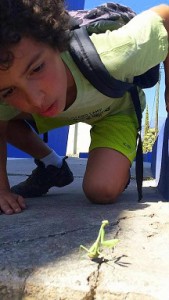 folks across the border and to the cities is resulting in “pueblos fantasmas” (ghost towns) where it is difficult to maintain agricultural self-sufficiency and cultural/social institutions. (More reason to be skeptical that the organic label relates in any way to true justice.) In Zimatlan, Leah met a farmer on the path who asked her story. When she shared that she was also a farmer, interested in an exchange of ideas, he began a rough inspection of her hands and arms. Seeing them sufficiently strong and calloused, he declared her story true and told her about the agricultural methods of the region.
folks across the border and to the cities is resulting in “pueblos fantasmas” (ghost towns) where it is difficult to maintain agricultural self-sufficiency and cultural/social institutions. (More reason to be skeptical that the organic label relates in any way to true justice.) In Zimatlan, Leah met a farmer on the path who asked her story. When she shared that she was also a farmer, interested in an exchange of ideas, he began a rough inspection of her hands and arms. Seeing them sufficiently strong and calloused, he declared her story true and told her about the agricultural methods of the region.
Leah is also building a friendship with Mexico’s top researcher on agrobiodiversity,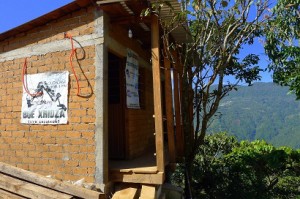 Dr. Jose Luis Chavez Servia, a sweet and humble man with a deep reverence for the material and spiritual aspects of traditional farming. He explains that every farmer has his own uniquely adapted variety of maize, beans, squash etc. and that each is “the best” for the particular microniche. Further, that true wealth is defined by the health of the harvest rather than the cash economy. “If
Dr. Jose Luis Chavez Servia, a sweet and humble man with a deep reverence for the material and spiritual aspects of traditional farming. He explains that every farmer has his own uniquely adapted variety of maize, beans, squash etc. and that each is “the best” for the particular microniche. Further, that true wealth is defined by the health of the harvest rather than the cash economy. “If 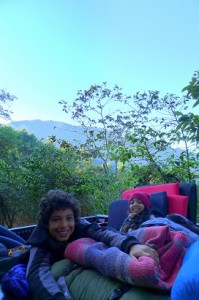 you have maize and beans, what else is there?’
you have maize and beans, what else is there?’
Jonah has started playing the piano again after a 20-year respite! He graduated from Spanish 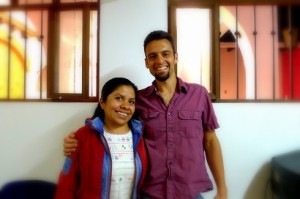 language school having engaged the complexities of the subjunctive and now dedicates his mornings to learning and practicing with his musical mentor, Dula. He is trying out a new balance between farm-related office work and creative pursuits. His first test came in the form of a grant opportunity that appeared “just perfect” for the farm, but would involve 3 days and nights straight of gathering documents and writing – still possibly not making the deadline. We d
language school having engaged the complexities of the subjunctive and now dedicates his mornings to learning and practicing with his musical mentor, Dula. He is trying out a new balance between farm-related office work and creative pursuits. His first test came in the form of a grant opportunity that appeared “just perfect” for the farm, but would involve 3 days and nights straight of gathering documents and writing – still possibly not making the deadline. We d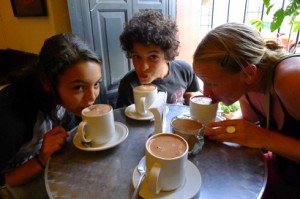 ecided not to destroy the present for a potential future, an unprecedented type of decision for us A-type productivity-driven folks, and an overarching goal of this year of redefining our relationships to each other, family, work, community and self. Sustainability must also come from the inside out.
ecided not to destroy the present for a potential future, an unprecedented type of decision for us A-type productivity-driven folks, and an overarching goal of this year of redefining our relationships to each other, family, work, community and self. Sustainability must also come from the inside out.
Leah is teaching regularly now at the University. She offers professional development workshops for 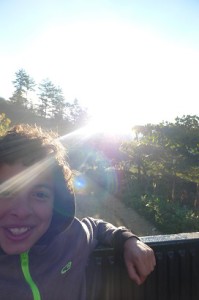 the education department faculty and teaches a course on sustainable food in the nutrition department. This has been a terrifying and exciting transition, learning the discourse-specific vocabulary in Spanish and maintaining a new web of relationships. She also had to travel for a Fulbright mid-term conference 10 hours north of Oaxaca, which was both fascinating and exhausting. Leah also just finished and published an article on the intersection of Black Lives Matter and Food Justice in YES! Magazine and is making preparations for Black and Latino Farmers Immersion 2015, with applications now open! She is feeling a little nostalgic about
the education department faculty and teaches a course on sustainable food in the nutrition department. This has been a terrifying and exciting transition, learning the discourse-specific vocabulary in Spanish and maintaining a new web of relationships. She also had to travel for a Fulbright mid-term conference 10 hours north of Oaxaca, which was both fascinating and exhausting. Leah also just finished and published an article on the intersection of Black Lives Matter and Food Justice in YES! Magazine and is making preparations for Black and Latino Farmers Immersion 2015, with applications now open! She is feeling a little nostalgic about 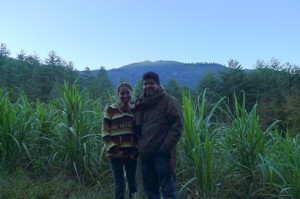 the first couple weeks here when there was time to read books on the roof.
the first couple weeks here when there was time to read books on the roof.
The children are thriving. At last they have a true friend in Isham. The three of these kiddos all grew up close to the earth, social justice minded, with parents that like to play silly games. They laugh and wrestle, pantomiming their desires across a language barrier, and initiating family double sleepovers. They are especially happy today because their Nonna and Zayde arrived and we are having a pinata and cake for Neshima’s birthday. They modified the process though, as Emet said, “It’s hard for elders to run for candy, so we will just divide it evenly so its fair.” Que lindo!